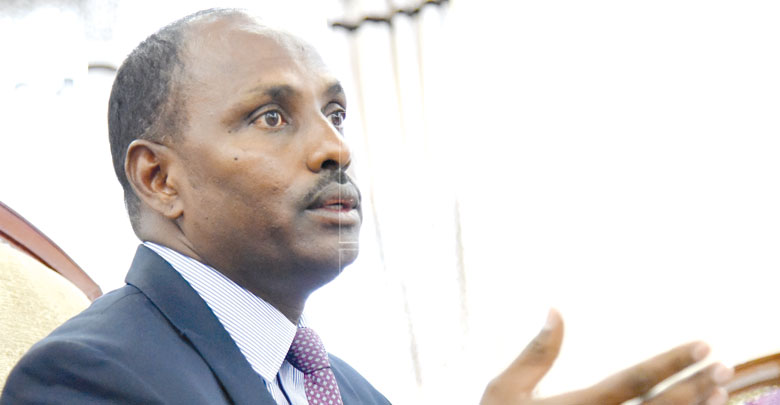Treasury spells out new tough expenditure measures
By Eric Wainaina, September 27, 2019The government has announced a raft of new austerity measures as it seeks to rein in spending by public officials in the face of ballooning debt and reduced revenue collections.
This is the second such announcement in three months after an earlier circular by former Treasury Cabinet secretary Henry Rotich in June, that outlined the same measures, seems to have been largely ignored.
Top on the list of the new “Expenditure Control Measures” is reduction of foreign travel expenses, State-sponsored training and purchase of assets, which have been gobbling up a huge chunk of public resources through inflated venue and transport costs and staff allowances.
In the circular dated September 25, 2019, Acting National Treasury Cabinet secretary Ukur Yatani directs State officers to exploit technology including teleconferencing and utilise foreign missions when transacting inter-country business in a bid to minimise overseas travel.
The circular is copied to all CSs and accounting officers in the ministries who are expected to alert State departments and agencies.
“Given the need to enhance requirements for the Big Four Plan, emerging expenditure pressures, the under-performance of revenue and the already high level of borrowing, it is inevitable that public spending is tightened,” says Yatani.
No one spared
The policy also affects Judiciary staff, the National Assembly, counties as well as independent offices and commissions.
“County governments are expected to issue similar circular to communicate the policy measures to county entities,” says the minister.
Where CSs and Principal Secretaries must travel, Yatani directs them to drastically cut down on the size of their delegations.
A CS’s delegation should not exceed four people, including the minister, while for PSs and Chief Administrative Secretaries, delegations be limited to three members, including the team leader.
“All MDA should utilise technology and transact business through teleconference, use of our foreign missions and embassies to transact government business and other communication platforms to minimise on foreign travel,” reads the circular that is copied to the Head of Public Service, Attorney General, Auditor General, Controller of Budget and all county executive committee members.
A report from the Controller of Budget shows that in the first nine months of the current financial year, government spent Sh7.7 billion on local travel and Sh4.2 billion on foreign trips, a sharp rise from the previous year.
“The expenditure control measures outlined in this circular are aimed at enhancing prudent financial management by ensuring that we live within our means, create saving for much needed service delivery and foster fiscal responsibility,” says the CS.
For government sponsored training, unless for highly specialised courses, Yatani has instructed that they be conducted in the country and in particular at the Kenya School of Government and other government training institutions.
Benchmarking suspended
The popular benchmarking and study tours, especially by Members of County Assemblies, have been suspended until further notice.
Meetings, workshops and seminars have been pinpointed as the easiest channels of stealing money in public offices with the cost of venues, cost of transporting staff and per diems regularly inflated.
Communication and airtime allowances have not been spared with the minister directing that expenditure be reduced by 30 per cent.
He asks accounting officers to encourage use of internet calls and other cheaper options.
In a move that is likely to further hit the already struggling media sector, the minister has outlawed the use of newspaper supplements to publicise strategic plans, service charters and events. He wants these to be limited to ministry websites.
Purchase of newspapers for government employees too has been affected with the instructions that papers given to staff be rationalised to restrict the spending to one quarter of the current budget.
In transport, Yatani says the government is committed to fast-track the passage of a transport policy.
“In the meantime, the existing guidelines on transport for selected senior officers in ministries, chief officers of parastatals and all authorised officers be enforced.”
The CS says that any officer receiving commuter allowance and continues to use government transport will be surcharged.
He also wants cut-backs in the renting and partitioning of offices as well as purchase of furniture.
“All provisions for purchase of furniture should be reduced by 75 per cent for the next three years. In addition any purchase of furniture be restricted to locally manufactured products,” says the circular.
The government has been grappling with a huge budget deficit due to unmet revenue targets by the Kenya Revenue Authority (KRA), largely blamed on tax evasion and theft.
For instance, in the last financial year, which ended on June 30, though KRA collected Sh1.44 trillion which was Sh100 billion more than the previous year, it failed to meet its target in what observers blamed on fraud and tax evasion.
Siphoning of money
In the current financial year KRA had projected to collect Sh1.605 trillion, a threshold which has since been revised downwards.
To supplement its ambitious budget which has risen to Sh3.02 trillion a year, the government borrowed heavily, especially from China and Japan to finance its flagship projects, with the current debt estimated to be over Sh5 trillion.
Theft has also been blamed on the over expenditure in both the National and county governments where cost of projects is inflated to facilitate the siphoning of money.
Tellingly, former Treasury CS Rotich has been charged with fraud in two multi-billion dam projects in the Rift Valley where taxpayers stand to lose huge amounts of money.
